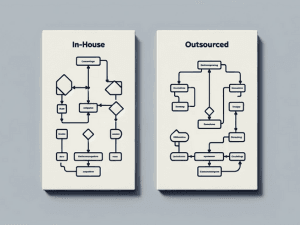Business process outsourcing, or BPO, is when a company hires an outside service provider to handle certain business tasks and operations.
This allows the business to focus on its main priorities while the provider takes care of supplementary activities.
BPO can include various services like payroll, customer support, human resources, accounting, and more.
Significant Reduction in Labor Costs
Outsourcing labor-intensive tasks cuts down on salary, benefits, training, and other employee-related expenses.
Rather than hiring full-time workers, businesses can pay only for the specific services they need.
The cost savings from BPO can be substantial.
Core Advantages of BPO for Businesses
It’s tough for companies to scale up operations on their own.
BPO gives businesses the flexibility to expand faster. Instead of being limited by internal bandwidth, companies can leverage outside resources to support rapid growth.
Enhancing Operational Flexibility
BPO also allows businesses to scale back as needed.
Companies with seasonal or fluctuating demand can increase capacity during busy periods and reduce it during slower times.
This adaptive approach is more affordable than hiring full-time employees.
Accessing Elite Talent Pool
Specialty BPO firms employ highly skilled experts.
Even small businesses can tap into elite talent worldwide through outsourcing.
This level of quality and knowledge may be hard to match with localized hiring.
Sharpening Company Focus on Core Activities
Handling peripheral tasks in-house steals time and attention from a company’s essential operations.
BPO enables businesses to delegate non-critical functions and zero in on high-value priorities.
Ensuring Compliance and Mitigating Risks
Keep up with changing regulations can be an obstacle, especially for small companies.
BPO providers maintain compliance in their areas of expertise, shielding clients from associated risks and penalties.
Securing a Competitive Edge in the Market
For small enterprises competing against big companies, BPO can help overcome built-in disadvantages.
The operational flexibility, talent access, and cost structure improvements allow smaller players to effectively take on larger rivals.





